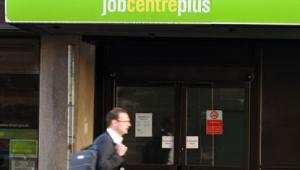By Richard Johnstone | 18 December 2013
The number of people unemployed has fallen to its lowest level in more than four years, as the total in work passed 30 million for the first time, the Office for National Statistics said today.
In the three months from August to October, the number of people unemployed was 2.39 million, down 99,000 from the previous three months, and 121,000 lower than the same period in 2012. This is the lowest total since the February to April period in 2009, according to the ONS’ labour market statistics.
The total number of people working stands at nearly 30.1 million, up 250,000 from May to July, and an increase of around 485,000 from a year earlier.
Employment minister Esther McVey said it was ‘really encouraging’ that the total number of people in work had passed 30 million.
She added: ‘Together with a big fall in unemployment, this shows that the government’s long-term economic plan to get people off benefits and into work is proving successful.
‘It’s also thanks to British businesses up and down the country who are feeling increasingly confident about taking on workers. This is a great sign that the economy is growing.’
Today’s figures also show that youth unemployment fell 19,000 over the three months to 941,000, while the number of people out of work for more than a year was down 33,000 to 866,000.
Analysing the figures, the Centre for Economics and Business Research said the UK’s economic expansion over the past three quarters was having a substantial impact on labour markets.
However, the price paid for lower unemployment appeared to be low wage growth, the CEBR noted. Annual growth in average weekly earnings was 0.8% in the three months to October, well below the Consumer Prices Index inflation measure, which stood at 2.1% in November.
The proportion of workers in part-time jobs, at 27.1%, is also above the 25.4% average level from the decade before the financial crisis. In addition, nearly a fifth of part-time workers say they are underemployed because they cannot find suitable full-time employment.
Responding to the figures, trade union Unison said there were ‘major problems with the sort of jobs that are on offer’ in the economic recovery.
‘Today's figures mask the reality of widespread underemployment, with too many people in low paid, part-time work or on zero hour contracts with no guaranteed income from week to week,’ said general secretary Dave Prentis.
‘Presiding over figures that show almost 1.5 million workers have been condemned to part-time jobs because they cannot find full-time work, the highest number since records began, is nothing for the government to be proud of.’






















